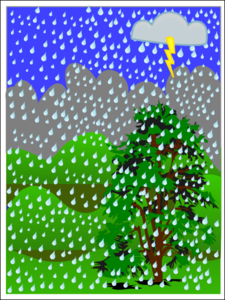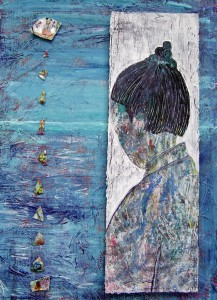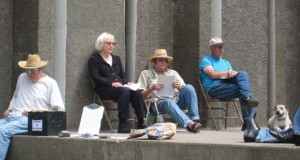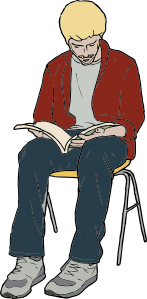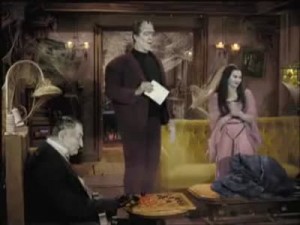 Special because Dore offered his creamy oatmeal in the morning. Special because there was a stream of birthday wishes on Facebook. Special because Jack Foley took me to one of his favorite haunts (Binh Minh Quan) in Oakland for lunch and prepared a “Clara Box” filled with poetry books. Special because Vern brought flowers. Special because Lawrence and his girlfriend Corrine drove two hours (stuck in traffic) from the East Bay to have dinner with me. Special because Julia wrote a poem: a poem of memories, of laughter and tears, of growing pains and love. It’s the most beautiful poem that a mother can have.
Special because Dore offered his creamy oatmeal in the morning. Special because there was a stream of birthday wishes on Facebook. Special because Jack Foley took me to one of his favorite haunts (Binh Minh Quan) in Oakland for lunch and prepared a “Clara Box” filled with poetry books. Special because Vern brought flowers. Special because Lawrence and his girlfriend Corrine drove two hours (stuck in traffic) from the East Bay to have dinner with me. Special because Julia wrote a poem: a poem of memories, of laughter and tears, of growing pains and love. It’s the most beautiful poem that a mother can have.
Birthday. What a concept!

